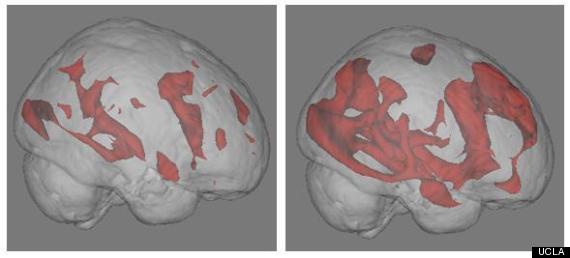Cyber Addiction Neurally Disconnects Social Connectivity and the Future
Below are two articles on cyber addiction and neural rewiring. It is to be aware of the inter-net (internal net) or web of neural networks.
Rewiring of the brain away from social patterning is a real issue that will manifest in the future as children are wired early in linear functionality. For some this is the game plan, for others it is a disaster for the evolution of civilisation that must adapt and become resilient. In my view it will disconnect children from their nature as they become programmed rather than inspired.
In my own life I change my life regularly in the sense that I am always moving, my day is never the same, I uptake new knowledge based on inspiration and an openness to possibilities. My life is unusual in that I am in a state of constant change, uncertainty and creativity. The uncertainty is not a negative experience for me it is simply stepping out of the comfort zone as I am open to change. I am incredibly resilient as I am used to not knowing. So I open to life and I can see the patterns (order in chaos) underlying life. I have to constantly re-create, think again, reevaluate, reflect, imagine, explore so my brain is not in rote patterns, although like anyone I have patterns on how I find stability to be able to work without a office, without money, without a permanent home, without a social network and so on. I find I develop inner stability when my outer life is constant change. I find I develop inner security when I don’t have income. I find I can creatively see as I am constantly looking for other ways, possibilities etc. I am not unconscious as I have to stay alert given my life is in a state of constant change. The change does energise and life tends to feel fuller and longer as there is more happening dynamically then on automatic pilot. That is how I know that the cyber routines will map on the brain of children. They are not third dimensional spaces regardless of the illusion of graphics and interactions, it is not people or life that is dynamic here where random chance happens and ideas perculate through discussion. IT is a simulation of skill, rote learning, linear thinking, projection, alpha states (TV watching) which enables passive uptake of stimuli rather than active discussion coming from a sense of self determination. The rewiring changes how (and what) you see. How we think (and feel) literally opens portals to aspects of reality. When we see then believe this is programming, when we believe and then see with imagination then another aspect of reality becomes visible.
The future of humanity will depend on how we see ourselves and each other. If the prism is love based then technology can serve humanity, if it is fear based then humanity will serve technology (profit). That is how I see it.
This is the link to the article on cyber addiction.
https://www.deccanherald.com/content/582543/cyber-addiction-social-malady.html
This Is How The Internet Is Rewiring Your Brain

We email. We tweet. We facebook. We google. In this incredible age of technology, our computers sometimes seem to have taken control over our everyday lives — from how we buy groceries to how we find mates. How is all this screen time affecting our brains?
In his provocative 2010 book, “The Shallows: What The Internet Is Doing To Our Brain,” author Nicholas Carr wrote, “The Internet is an interruption system. It seizes our attention only to scramble it.”
That doesn’t sound good. Or, is it possible the online world simply helps us adapt to become better multi-taskers, all while we still maintain critical thinking skills? After all, the brain is plastic, meaning it changes based on our behavior and experiences.
So then when it comes to technology, what behavior are we practicing — and how does that affect our minds? Here are five freaky facts.
Fact #1: The Internet may give you an addict’s brain. MRI research has shown that the brains of Internet users who have trouble controlling their craving to be constantly plugged-in exhibit changes similar to those seen in people addicted to drugs and alcohol. A 2011 study showed that unplugging from technology for one day gave some users physical and mental withdrawal symptoms, The Telegraph reported.
“The majority of people we see with serious Internet addiction are gamers –- people who spend long hours in roles in various games that cause them to disregard their obligations,” Dr. Henrietta Bowden Jones, an Imperial College, London psychiatrist who runs a clinic for Internet addicts and problem gamblers, told The Independent.
Fact #2: You may feel more lonely and jealous. Social media may make it easier to connect with others, but recent research by German scientists suggests that constantly viewing images of others’ vacation photos, personal achievements, etc. can trigger strong feelings of envy, even sadness. Researchers have even described the phenomenon as “Facebook depression.”
“We were surprised by how many people have a negative experience from Facebook with envy leaving them feeling lonely, frustrated or angry,” Hanna Krasnova, a researcher at Berlin’s Humboldt University, told Reuters.
Fact #3: Internet use may heighten suicide risk in certain teens. After conducting a review of previous research on studies on teens’ Internet use, researchers at the University of Oxford in England concluded that online time is linked to an increased risk of suicide and self-harm among vulnerable adolescents. Their paper was published online on Oct. 30 in the journal PLOS ONE.
“We are not saying that all young people who go on the Internet increase their risk of suicide or self-harm,” one of the researchers, Dr. Paul Montgomery, professor of psycho-social intervention at the university, said in a written statement. “We are talking about vulnerable young people who are going online specifically to find out more about harming themselves or because they are considering suicide already. The question is whether the online content triggers a response so that they self-harm or take their own lives and we have found that there is a link.”
Fact #4: Memory problems may be more likely. Even a rather typical session of social media browsing can lead to information overload and make it harder tofile away information in your memory, according to Dr. Erik Fransén, professor of computer science at Sweden’s KTH Royal Institute of Technology. A 2009 study from Stanford University suggests that the brains of people who are constantly bombarded with several streams of electronic information — from instant messaging to blogs — may find it difficult to pay attention and switch from one job to another efficiently.
“When they’re in situations where there are multiple sources of informationcoming from the external world or emerging out of memory, they’re not able to filter out what’s not relevant to their current goal,” Dr. Anthony Wagner, an associate professor of psychology at Stanford, said in a written statement. “That failure to filter means they’re slowed down by that irrelevant information.”
Fact #5: But it’s not all bad — in moderation, the Internet can actually boost brain function. A 2008 study suggests that use of Internet search engines can stimulate neural activation patterns and potentially enhance brain function in older adults.
“The study results are encouraging, that emerging computerized technologies may have physiological effects and potential benefits for middle-aged and older adults,” the study’s principal investigator, Dr. Gary Small, professor of neuroscience and human behavior at UCLA, said in a written statement. “Internet searching engages complicated brain activity, which may help exercise and improve brain function.”
 Functional MRI brain scans show how searching the Internet dramatically engages brain neural networks (in red). The image on the left displays brain activity while reading a book; the image on the right displays activity while engaging in an Internet search.
Functional MRI brain scans show how searching the Internet dramatically engages brain neural networks (in red). The image on the left displays brain activity while reading a book; the image on the right displays activity while engaging in an Internet search.